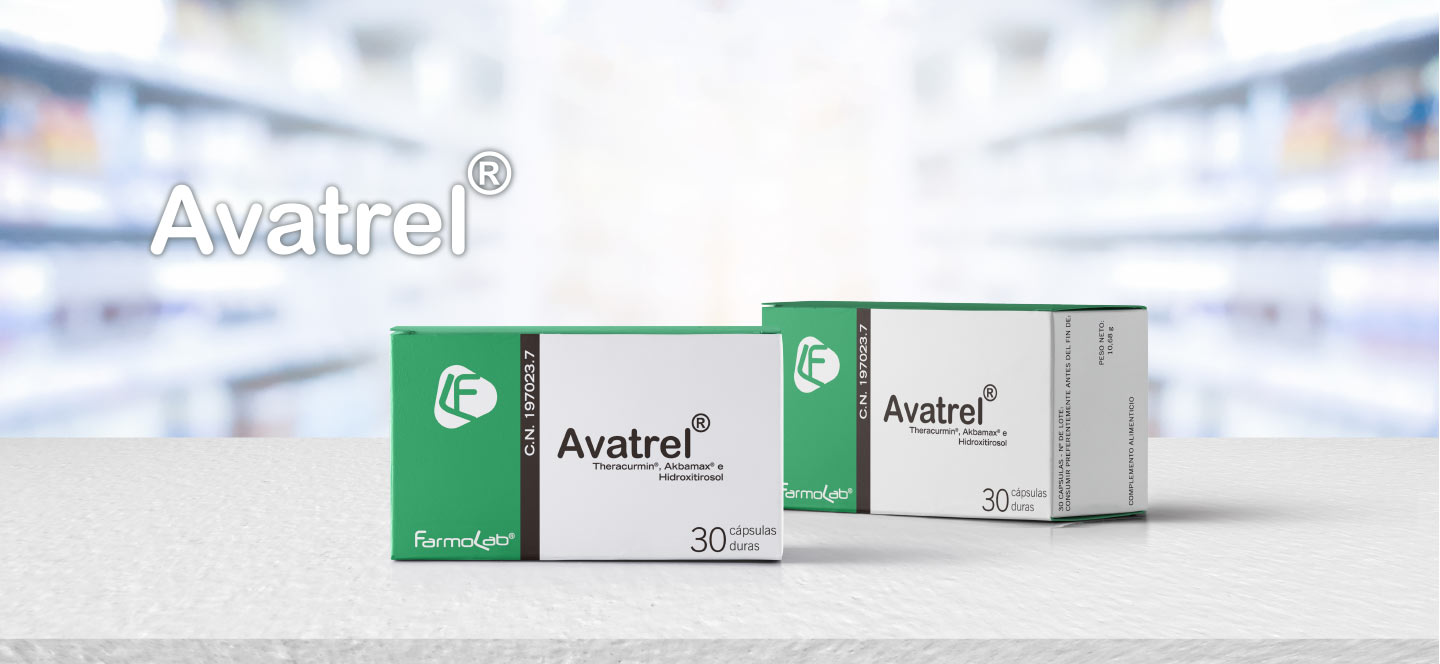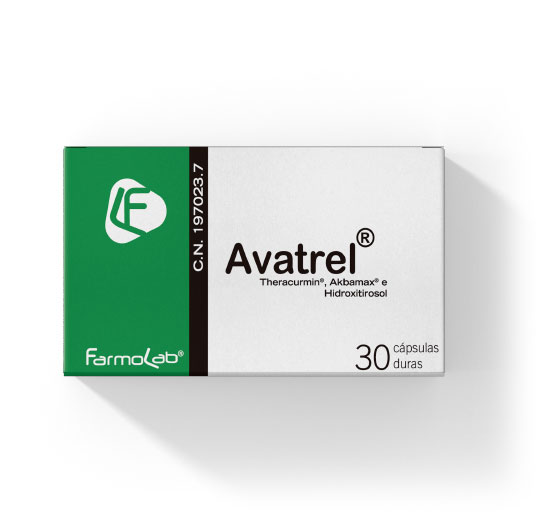
Avatrel®
Avatrel® 30 Capsules used for:
In the general population and particularly in people with intestinal disorders.
Avatrel® 30 Capsules:
Oxidative stress is intimately linked to intestinal disorders, high ROS production and decreased antioxidant enzymes in the intestinal mucosa is often one of the causes of numerous intestinal disorders.
The turmeric rhizome contains a number of substances called curcuminoids, of which curcumin is the most important. Turmeric can help control oxidative stress and contributes to intestinal comfort. The main difficulty of the components of turmeric is absorption by the body. The bioactive turmeric extract (Theracurmin®), included in Avatrel®, is obtained through a specific formulation process, which improves its bioavailability to obtain its maximum benefits.
The “boswellic acids”, which we extract from boswellia serrata, help us to maintain the health of the digestive tract and to calm the intestine, in addition to helping to maintain the lining of the walls of the digestive system. The most important is boswellic acid – AKBA, a component of Avatrel® which we have enriched more than 5 times through a specific formulation (Akbamax®).
Hydroxytyrosol is a phenolic compound derived from the extract of Olea Europaea L., which helps to protect the lipids of the blood plasma against oxidative stress, in order to help maintain the normal functioning of the gastrointestinal tract.

INFORMATION
Uses:
Avatrel® by Laboratorios Farmolab is a food supplement that can provide an intestinal protective effect.
It is believed that pathologies associated with inflammatory bowel disease, both inflammation and continued and excessive activation of the intestinal mucosa by the immune system, are related to an aberrant response caused by defects both in the intestinal epithelium barrier and in the immune system of the mucosa.
In such situations, being able to offer protection against uncontrolled inflammation, for instance controlling excessive oxidative stress, can be of great help.
Presentation:
NATIONAL CODE (C.N.): 197023.7
Box of 30 capsules.
Instructions for use:
It is recommended to take 1-2 capsules per day.
A minimum of 6 months is recommended. Avatrel® can be taken on an ongoing long-term basis.
It is suitable for gluten- and lactose-intolerant patients and diabetics.
Store in a cool and dry place, away from light, at a temperature less than 25° C. Avoid sudden changes in temperature. The expiration date is applicable to the product with the original packaging intact and properly stored. Keep out of reach of children under 3 years of age. Food supplements are not intended to replace a varied and balanced diet and a healthy lifestyle. Do not exceed the suggested daily dose. Do not take in case of hypersensitivity to one or more components of this product.
Composition
Theracurmin® – 30mg
Is a Submicron Colloidal Dispersion Particles of Curcuminoids and Curcuminoids, about the size of the nanoscale, that are stable and dispersible in water. This new curcumin formulation stimulates its absorption and bioavailability. Curcumin is an antioxidant polyphenol that can help control oxidative stress and contributes to intestinal comfort.
Hydroxytyrosol – 5mg
Phenolic compound obtained from Olea Europea L extract, which helps to protect the lipids of the blood plasma against oxidative stress, in order to help maintain the normal functioning of the gastrointestinal tract.
Akbamax® – 100mg
Contains boswellic acids from Boswellia Serrata, that can favour the digestive tract health and calm the intestines, as well as help maintain the lining of the digestive system.